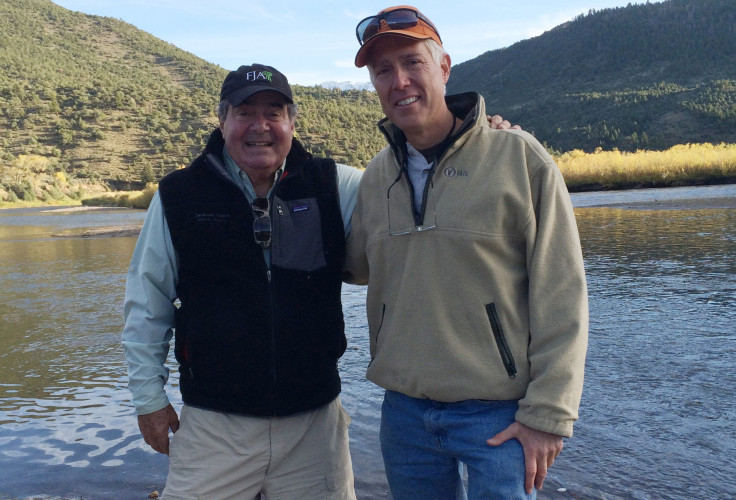Gorsuch And Religion: Trump Supreme Court Nominee's Protestant Faith Would Bring Diversity To SCOTUS

If Neil Gorsuch is confirmed to replace Antonin Scalia on the Supreme Court the federal appeals court judge, who is also a white man, would help to further his predecessor's vision of a more diverse high court. President Donald Trump nominated Gorsuch Tuesday evening.
In his dissenting opinion in Obergefell v. Hodges, the landmark case that granted same-sex couples the right to marry, Scalia bemoaned the court's makeup and its failure to reflect the demographics of the American people. Scalia, who died in February 2016, called the court a "strikingly unrepresentative" body.
Take, for example, this Court, which consists of only nine men and women, all of them successful lawyers who studied at Harvard or Yale Law School. Four of the nine are natives of New York City. Eight of them grew up in east- and west-coast States. Only one hails from the vast expanse in-between. Not a single Southwesterner or even, to tell the truth, a genuine Westerner (California does not count). Not a single evangelical Christian (a group that comprises about one quarter of Americans), or even a Protestant of any denomination.
It's hard to imagine Gorsuch adding to the diversity of any government body, given the standard definition of the term, but his confirmation would help rectify — if only slightly — the homogeneity that Scalia described.
Like five of the current justices, Gorsuch studied at Harvard Law School. But if confirmed, Gorsuch, a fourth-generation Coloradan, would be the only justice from a landlocked state. He would also be the only Protestant on the court. Currently, the court is comprised of five Roman Catholics and three Jews — the first time the court has ever lacked a Protestant.
Gorsuch is Episcopalian, a denomination of Protestantism that has a great deal in common with Catholicism (the church has priests and bishops, for example). The Episcopal Church even calls itself "Protestant, yet Catholic."
"Episcopalians celebrate the Mass€ in ways similar to the Roman Catholic tradition, yet do not recognize a single authority, such as the Pope of Rome," the Episcopal Church's website says.
Gorsuch doesn't represent a seismic shift in the court's composition, and the court will continue to be an Ivy League club if he is confirmed. He does, however, make the course slightly more diverse than it was a year ago.
© Copyright IBTimes 2024. All rights reserved.






















